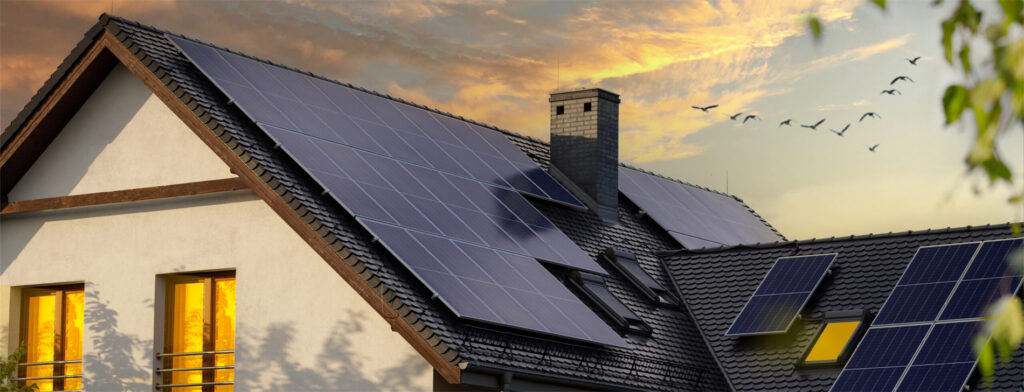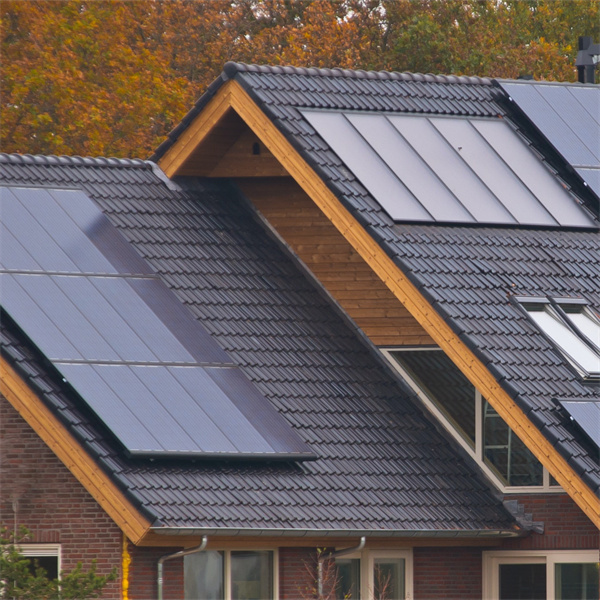I. Introduction
In the quest for sustainable and clean energy sources, solar power has emerged as a frontrunner. With its ability to harness the sun’s energy and convert it into electricity, solar power offers an environmentally friendly alternative to traditional energy sources. Apex Solar is a game-changer in the field of renewable energy, revolutionizing the way we generate and consume electricity. In this article, we will explore the concept of Apex Solar, its advantages, how it works, its applications, and its promising future.
II. What is Apex Solar?
A. Definition of Apex Solar
Apex Solar refers to the innovative use of solar energy to generate electricity. It involves the installation of solar panels, which are made up of photovoltaic cells that capture sunlight and convert it into usable electrical energy. Apex Solar systems can be installed on rooftops, open fields, or even integrated into building facades to maximize energy production.
B. The Role of Solar Energy in Renewable Energy
Solar energy plays a vital role in the broader context of renewable energy. As a renewable resource, solar power offers numerous benefits compared to fossil fuels. It is abundant, sustainable, and emits zero greenhouse gases during operation, making it an environmentally friendly choice. By harnessing solar energy through Apex Solar systems, we can reduce our reliance on non-renewable sources and mitigate the harmful effects of climate change.
III. The Advantages of Apex Solar
Apex Solar offers several advantages that make it a game-changer in the field of renewable energy.
A. Cost Savings
One of the primary advantages of Apex Solar is the potential for significant cost savings. By generating electricity from solar power, users can reduce their reliance on the traditional power grid, resulting in lower energy bills. Additionally, some governments and utility companies offer incentives such as tax credits and net metering, further enhancing the financial benefits of Apex Solar installations.
B. Environmental Benefits
Apex Solar is a clean and sustainable energy solution that has minimal impact on the environment. Unlike fossil fuels, solar power does not produce harmful emissions or contribute to air pollution. By embracing Apex Solar, we can reduce our carbon footprint and contribute to a healthier and more sustainable planet.
C. Energy Independence
Another advantage of Apex Solar is the opportunity for energy independence. By generating their own electricity, individuals and businesses can become less reliant on external energy sources. This independence provides greater stability and resilience, particularly in regions prone to power outages or limited access to traditional energy infrastructure.

IV. How Apex Solar Works
Understanding the working principles of Apex Solar systems is crucial to comprehend their significance.
A. Solar Panels and Photovoltaic Cells
Apex Solar systems utilize solar panels, Apex Solar systems utilize solar panels, which are composed of photovoltaic cells. These cells are made of semiconductor materials, typically silicon, that have the unique property of converting sunlight into electricity. When sunlight hits the surface of a photovoltaic cell, it excites the electrons within the material, creating an electric current.
B. Solar Power Generation Process
The solar power generation process begins with the solar panels absorbing sunlight. The photovoltaic cells within the panels convert the sunlight into direct current (DC) electricity. This DC electricity is then converted into alternating current (AC) electricity through an inverter, making it compatible with the electrical systems used in homes, businesses, and industries.
The solar panels are strategically positioned to maximize the absorption of sunlight. Factors such as the angle, orientation, and shading are taken into account during the installation process to optimize the system’s performance. When sunlight strikes the photovoltaic cells, the energy from the photons knocks loose electrons from the atoms in the semiconductor material. This creates an imbalance of charges, leading to the generation of an electric current.
The DC electricity generated by the photovoltaic cells is then sent to an inverter. The inverter converts the DC electricity into AC electricity, which is the type of electricity used to power homes, businesses, and other electrical devices. This conversion is necessary because most electrical appliances and the power grid operate on AC electricity.
Once the electricity is converted to AC, it can be used to power various appliances and devices in real-time. Any excess electricity generated by the solar panels that is not immediately consumed can be either stored in batteries for later use or fed back into the electrical grid. This allows homeowners and businesses to benefit from net metering, where they receive credits or compensation for the excess electricity they contribute to the grid.
By harnessing the power of sunlight and converting it into usable electricity, Apex Solar systems provide a sustainable and renewable energy solution that helps reduce reliance on traditional fossil fuels and mitigates the environmental impact of energy generation.


V. Apex Solar in Action
Apex Solar has a wide range of applications, both in residential and commercial settings.
A. Residential Applications
In residential settings, Apex Solar allows homeowners to generate their own electricity and reduce their reliance on the power grid. By installing solar panels on rooftops or in open areas on their property, homeowners can tap into a clean and sustainable energy source. Here are some key benefits of Apex Solar for residential applications:
- Lower Energy Bills: With Apex Solar, homeowners can significantly reduce their electricity bills. By generating their own electricity from the sun, they can offset or even eliminate their reliance on traditional energy sources, resulting in substantial savings over time.
- Financial Incentives: Governments and utility companies often provide financial incentives to encourage residential solar installations. These incentives may include tax credits, rebates, or net metering programs, where homeowners can earn credits for the excess electricity they produce and feed back into the grid.
- Energy Independence: Apex Solar empowers homeowners to become more self-reliant when it comes to their energy needs. By generating their own electricity, they are less vulnerable to fluctuations in energy prices and power outages. This energy independence provides stability and peace of mind.
- Environmental Contribution: Embracing Apex Solar at the residential level contributes to a greener future. By reducing reliance on fossil fuels, homeowners can significantly decrease their carbon footprint and mitigate the harmful effects of greenhouse gas emissions.
B. Commercial and Industrial Applications
Apex Solar is not limited to residential use alone; it is also gaining traction in the commercial and industrial sectors. Here’s how businesses and industries can benefit from Apex Solar:
- Cost Savings: Commercial and industrial entities have high energy demands, which can lead to substantial electricity expenses. Apex Solar offers a cost-effective solution by providing a renewable energy source that can significantly reduce operational costs over time. By generating their own electricity, businesses can allocate resources to other areas of growth and innovation.
- Sustainability Initiatives: Embracing Apex Solar aligns with sustainability and corporate social responsibility goals. By investing in renewable energy, businesses and industries demonstrate their commitment to reducing their environmental impact and preserving natural resources. This commitment can enhance their reputation, attract eco-conscious customers, and create a positive brand image.
- Long-Term Investment: Apex Solar installations have a long lifespan and require minimal maintenance. This makes them a reliable long-term investment for commercial and industrial entities. With a predictable energy source and potential for energy cost stability, businesses can better plan their budget and financial projections.
- Government Support: Many governments recognize the importance of renewable energy and offer incentives to businesses that invest in solar power. These incentives may include tax benefits, grants, or favorable regulatory frameworks, further enhancing the financial feasibility of Apex Solar installations.
Apex Solar is transforming the energy landscape by empowering both homeowners and businesses to embrace clean and sustainable energy sources. Whether it’s reducing energy bills, contributing to a greener future, or enhancing corporate sustainability efforts, Apex Solar offers numerous advantages for residential, commercial, and industrial applications.
VI. The Future of Apex Solar
The future of Apex Solar looks incredibly promising, with ongoing advancements and exciting possibilities.
A. Technological Advancements
The field of solar energy is continually evolving, with advancements in photovoltaic technology, energy storage solutions, and system efficiency. Scientists and engineers are working to improve the performance and durability of solar panels, making them more efficient and cost-effective. These advancements will further increase the attractiveness and viability of Apex Solar as a renewable energy solution.
B. Integration with Smart Grids
As smart grid technology continues to develop, the integration of Apex Solar systems with these intelligent energy networks becomes increasingly feasible. Smart grids enable bidirectional communication between the energy provider and consumers, allowing for efficient energy management and distribution. By connecting Apex Solar installations to smart grids, excess electricity generated can be fed back into the grid, benefitting both the system owners and the overall energy infrastructure.
VII. Conclusion
Apex Solar represents a game-changing solution in the realm of renewable energy. With its ability to harness the power of the sun, Apex Solar offers numerous advantages such as cost savings, environmental benefits, and energy independence. The technology behind Apex Solar, coupled with its applications in residential, commercial, and industrial settings, positions it as a significant contributor to a sustainable future. As the industry continues to advance and integrate with smart grids, the potential for Apex Solar to revolutionize the energy landscape becomes even more evident.
VIII. FAQs
How long do solar panels typically last?
Solar panels are designed to be durable and long-lasting, with an average lifespan of 25 to 30 years. However, many panels can continue to produce electricity beyond this timeframe, albeit with slightly reduced efficiency.
Are solar panels only suitable for sunny climates?
While solar panels perform best under direct sunlight, they can still generate electricity in cloudy or overcast conditions. Advances in technology have also made them more efficient at capturing diffused sunlight, allowing for solar power generation in regions with less sunshine.
Can solar panels power a home entirely?
Yes, solar panels have the potential to power an entire home, depending on factors such as the size of the solar installation, energy consumption patterns, and available sunlight. In some cases, solar panels can even generate surplus electricity that can be stored or fed back into the grid.
What happens to solar power generation during the night?
Since solar panels rely on sunlight to generate electricity, their production decreases significantly during the night when there is no sunlight. However, homes and businesses with solar installations often remain connected to the power grid, allowing them to draw electricity when solar generation is low, such as at night or during periods of high energy demand.
Are there any maintenance requirements for solar panels?
Solar panels generally require minimal maintenance. Regular cleaning to remove dust or debris is recommended to ensure optimal performance. Additionally, occasional inspections by professionals can identify any issues and ensure the system is operating efficiently.

